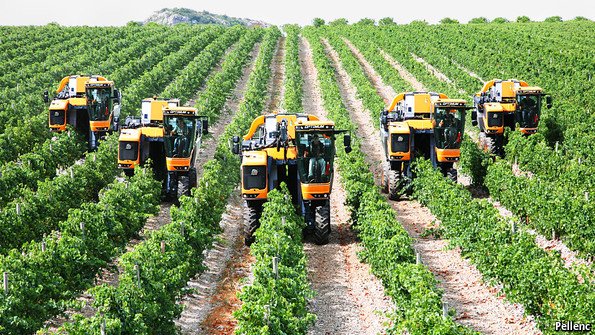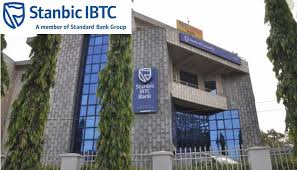
By Habibat Aliu
Investors have underscored the need for the government to rev up the implementation of policies and intervention programmes initiated for the agricultural sector in order to improve the sector’s productivity and boost their contributions to GDP and overall market capitalisation of the Nigerian Exchange (NGX).
The stakeholders, while assessing the performance of key economic sectors listed on the nation’s bourse, lamented the under-representation of the agricultural sector on the NGX, noting that five quoted companies under the sector constitute only 0.6 per cent of total exchange’s market capitalisation as at the end of the October 2022 despite its role in economic development.
With the development, the sector represents only N300.958 billion of the total NGX market capitalisation, which stood at N23.878 trillion within the period. The companies are: FTN Cocoa Processors, Okomu Oil, Presco, Ellah Lakes and Livestock Feeds.
National Coordinator of Issuers and Investors Alternative Dispute Resolution Initiative (IIDRI) noted that the NGX as an important component of the capital market, plays a significant role in capital formation process because of the tremendous opportunities that its activities offer, while lamenting that only few companies under the agriculture sector are listed on the NGX.
He argued that with the agriculture sector being identified as the main point of national transformation agenda and a segment of the economy whose growth has multiplier effects on other sectors, there is need for better commitment to the sector’s reforms in order to significantly enhance the prospects of more agric companies to get listed.
According to him, while industry composition is concentrated in a few industries like banks, consumer and industrial goods, the agric and oil & gas sectors that are critical for economic diversification, take up a much smaller proportion.
Therefore, he insisted that something should be done to stimulate activities in the sector, especially in the areas of long term funding through the capital market to boost performance of the sector’s listed firms and the commodities exchange.
Furthermore, he also pointed out that a deliberate policy on incentive would attract more firms in the sector to float IPOs and list on the exchange, to resuscitate the primary market segment, improve the current illiquidity position, and deepen the market.
An independent Investor, Amaechi Egbo said that the capital market holds the ace for the agricultural sector to take its prime place in the Nigerian economy.
According to him, one of the reasons the sector has remained subsistent over the years is because the financing needs for agriculture is quite substantial.
He also called for introduction of fiscal and monetary policies that would stimulate private sector investment.
Furthermore, he urged government and regulators to ensure that the value of listing on the stock market is sufficiently attractive and much more than the cost of being listed, stating that value proposition is crucial in any business decision, especially for private investors.
A breakdown of market capitalisation of these companies showed that Okomu Oil Palm which is made up of N161.7 billion market capitalisation and Presco Plc with market capitalisation of N128.350 billion are the two dominant stocks in the agriculture sector.
With total market capitalisation of about N290.038 billion, the two stocks account for 96.37 per cent of total market capitalisation of the five stocks listed under the agriculture sector.
The increased percentage of the two firms may, however, be attributed to their proven track record of delivering improved revenue growth and rewarding shareholders.
Also, a review on the listed firms’ performance on the NGX showed that Okomo Oil posted a 52 per cent decline in pre-tax profit for the third quarter (Q3), ended September 30, 2022 to N1.1 billion from N2.3 billion achieved in Q3 2021.
According to the company, the decline was due to sustained supply chain/price disruptions of Crude Palm Oil (CPO) in the international market influenced by the Russian/Ukraine crisis.
Livestock Feeds Plc, a subsidiary of United Africa Company of Nigeria (UACN), recorded an 89.8 per cent decline in profit to N18.1 million in the first quarter (Q1) of 2022, from N176.5 million in the same period last year.
Similarly, on a quarter-on-quarter basis, the company’s revenue declined by 2.2 percent to N3.56 billion in the second quarter (Q2) of 2022 from N3.64 billion achieved in the first quarter (Q1) of 2022.
The agribusiness reported a loss of N95 million arising from increased input costs in the first half of 2022, representing a 128 percent decline from a profit of N338 million reported in the first half of 2021.
Recall that United Capital Plc in its report titled ‘Unlocking Nigeria’s agricultural potential’ said; “The federal government via the Minister of Agriculture & Rural Development recently approved a five-year tax and duty-free holiday for agricultural production and processing in Nigeria, tax-free agricultural loans with a moratorium period of over 18 months and a repayment period of not more than seven years; and zero-tariff rates on the importation of agrochemicals.”
According to United Capital, these incentives are designed to encourage investments from private sector players in the agricultural sector, and facilitate increased food production output, processing, and marketing.
Furthermore, the FG recently restocked the Strategic Food Reserve with 200,000MT of assorted food commodities, amid lingering worries of potential food shortage in the aftermath of the recent flood devastation in the country. The issue of food security and maximising Nigeria’s agriculture potential has dominated the agenda of economic managers in the country.
However, the company stated that only very moderate success has been recorded in recent years. “As a result, food demand continues to outpace supply, keeping food inflation at elevated double-digit levels. Nigeria’s September 2022 food inflation climbed to 23.3 per cent year-on-year, 22bps faster than the 23.1 per cent Y-o-Y climb recorded in August, 2022.






